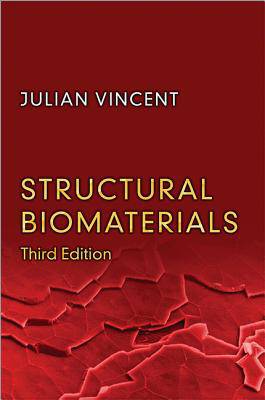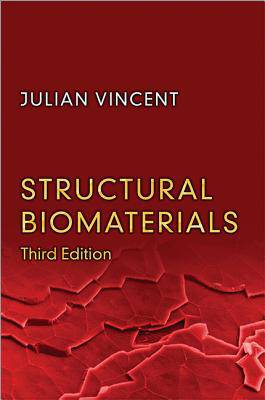
- Afhalen na 1 uur in een winkel met voorraad
- Gratis thuislevering in België vanaf € 30
- Ruim aanbod met 7 miljoen producten
- Afhalen na 1 uur in een winkel met voorraad
- Gratis thuislevering in België vanaf € 30
- Ruim aanbod met 7 miljoen producten
Omschrijving
This is a thoroughly revised, updated, and expanded edition of a classic illustrated introduction to the structural materials in natural organisms and what we can learn from them to improve man-made technology--from nanotechnology to textiles to architecture. Julian Vincent's book has long been recognized as a standard work on the engineering design of biomaterials and is used by undergraduates, graduates, researchers, and professionals studying biology, zoology, engineering, and biologically inspired design. This third edition incorporates new developments in the field, the most important of which have been at the molecular level. All of the illustrations have been redrawn, the references have been updated, and a new chapter on biomimetic design has been added.
Vincent emphasizes the mechanical properties of structural biomaterials, their contribution to the lives of organisms, and how these materials differ from man-made ones. He shows how the properties of biomaterials are derived from their chemistry and interactions, and how to measure them. Starting with proteins and polysaccharides, he shows how skin and hair function, how materials self-assemble, and how ceramics such as bone and mother-of-pearl can be so stiff and tough, despite being made in water in benign ambient conditions. Finally, he combines these topics with an analysis of how the design of biomaterials can be adapted in technology, and presents a series of guidelines for designers.- An accessible illustrated introduction with minimal technical jargon
- Suitable for undergraduates and more advanced readers
- Integrates chemistry, mechanics, and biology
- Includes descriptions of all biological materials
- Simple exposition of mechanical analysis of materials
Specificaties
Betrokkenen
- Auteur(s):
- Uitgeverij:
Inhoud
- Aantal bladzijden:
- 240
- Taal:
- Engels
Eigenschappen
- Productcode (EAN):
- 9780691154008
- Verschijningsdatum:
- 29/07/2012
- Uitvoering:
- Paperback
- Formaat:
- Trade paperback (VS)
- Afmetingen:
- 152 mm x 231 mm
- Gewicht:
- 340 g

Alleen bij Standaard Boekhandel
Beoordelingen
We publiceren alleen reviews die voldoen aan de voorwaarden voor reviews. Bekijk onze voorwaarden voor reviews.









